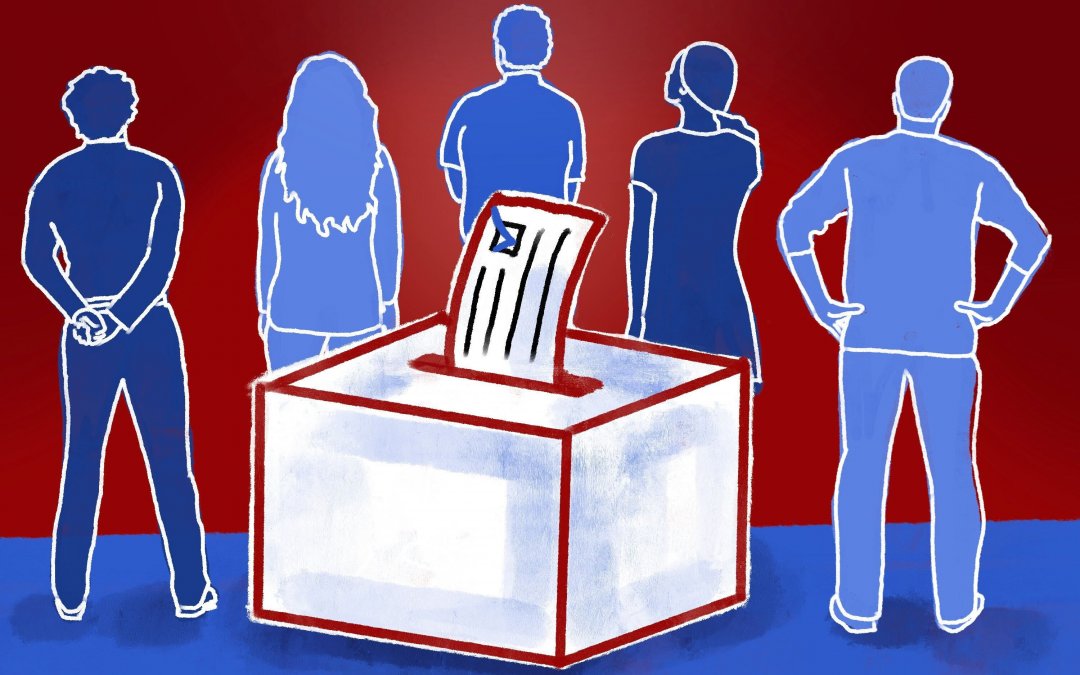Columbia, S.C. – Many college students are choosing not to vote in Saturday’s Republican presidential primary election in South Carolina, saying they feel unrepresented by the candidates and apathetic towards politics.
In 2020, only 16.4% of S.C. voters participated in presidential primary elections, while 72.1% voted in the general election. Many college students at the University of South Carolina seemed to fall in line with this trend, reporting that the primary felt unimportant to them.
For USC student John Koch, registering to vote just hasn’t felt urgent.
“I really just haven’t gotten around to [registering],” Koch said. “I know that I should, but none of my friends have really been talking about it or anything. I just didn’t see the need.”
Koch also said he feels Trump’s selection as the Republican nominee is a “foregone conclusion,” which has discouraged him from voting. Former S.C. Governor Nikki Haley’s defeats in Iowa and New Hampshire, as well as Trump’s popularity here, indicate a Trump victory in the state is imminent.
“It doesn’t feel like it’s going to be a close race, so I just don’t feel like putting in the effort at the moment,” Koch said. “I would like to vote against [Trump], but it honestly doesn’t seem like it’ll make a difference.”
Video report: College students sitting our Republican primary in S.C. (Alicia Tang/MNS)
Danielle Vinson, a professor of politics and international affairs at Furman University, said that many college students feel disillusioned by the state of politics in the U.S. “I hear [students] saying that politics is just a lot of people squabbling, and they’re not actually getting things done,” Vinson said.
Vinson also argued that because many students don’t vote, politicians sometimes ignore them and instead focus on older generations. According to the Pew Research Center, 27% of nonvoters in the 2020 presidential election were between the ages of 18 and 29.
“A lot of young people just don’t think it matters, but you see the politicians paying attention to the people that vote,” Vinson said. “If young people as a group become more active, then I think you’ll see politicians starting to focus a little bit more on that.”
Some students are held back by busy schedules and a lack of information about the candidates.
“I’ve just been really focused on school,” said USC student Juliana Narral. “I haven’t really had time to research any of the candidates because I’ve always been in the books.”
Narral said that if she was going to vote, she would look for a candidate who would “prioritize people of color like [herself].”
Other students said they didn’t feel motivated to vote in the primary but plan to vote in the general election in November. USC student Casey Smith said that he wouldn’t be voting in Saturday’s primary but would vote for Trump in November.
“Our state of the economy when Trump was president I feel like was a lot better,” Smith said. “His policies with immigration and the border wall, I felt like that was a pretty fair policy.”
Ashleigh Robinson, a USC student from Rockhill, S.C., said that she isn’t voting because she feels “promises aren’t kept” by politicians.
“I feel like a lot of the politicians nowadays, they only appeal to what people want to hear,” Robinson said. “They don’t put a lot of action into the things they say they’ll do or the groups that they’ll pay attention to.”
Robinson said she wants a “realistic” candidate that “doesn’t make false promises.” She hopes for a candidate who will advocate for marginalized communities and low-income individuals.
Vinson has seen similar perspectives in her students at Furman University. She argued that politicians need to appeal more to issues that are important to Gen Z, including climate change and LGBTQ+ rights.
Despite choosing not to vote in Saturday’s primary, Robinson said she is optimistic that there will be candidates that she will want to vote for in the future.
“I have hope that maybe a potential Gen Z candidate will come about one day and everybody will be willing and ready to vote for them,” Robinson said.
Maria Heim contributed to production.

